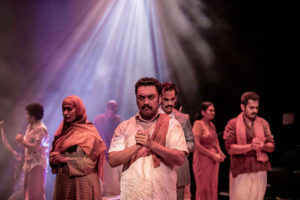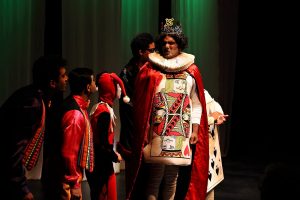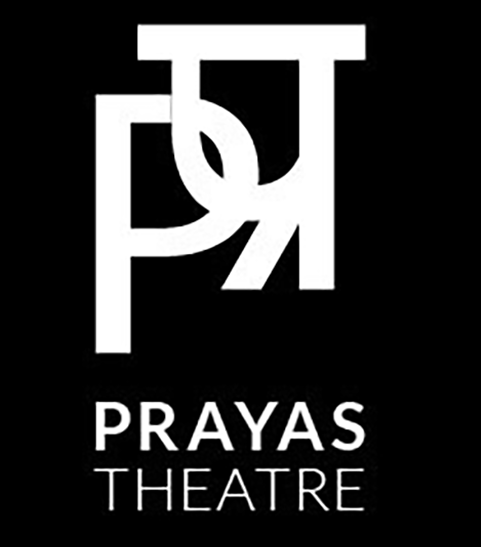In 2010 I left Wellington to pursue an artistic career in Auckland. Having recently graduated from Toi Whakaari, New Zealand School of Drama and not being able to move beyond an industry that would limit me to playing every possible South Asian stereotype of either a terrorist, taxi driver, dairy owner, or a mystical guru, I was looking for something that would allow me to practice my craft and allow me to grow as an artist. I was metaphorically (and literally) looking for a home.
Not everyone chooses to leave home, some are forced to. My family was forced to leave our home country of Srilanka in 1990.  Since that move, my life has been that of a nomadic gypsy, temporarily setting up homes and families to belong somewhere, anywhere, and moving on to the next destination. I had become accustomed to the idea that change was the only constant and nothing could be permanent. My artistic sensibilities and kaupapa traces back to Tawata Productions, an Indigenous Kaupapa Maori and Pasifika Production company that really instilled the idea of Whare Tapere.
Since that move, my life has been that of a nomadic gypsy, temporarily setting up homes and families to belong somewhere, anywhere, and moving on to the next destination. I had become accustomed to the idea that change was the only constant and nothing could be permanent. My artistic sensibilities and kaupapa traces back to Tawata Productions, an Indigenous Kaupapa Maori and Pasifika Production company that really instilled the idea of Whare Tapere.
My encounter with Prayas almost never happened. My invitations and callings to the homes of others always came after I had chosen to move elsewhere. I received an email about Prayas’ latest show Tasher Desh – Kingdom of Cards, and a casting call for the role of the king. The closest thing to royalty I had played up to that point was the Dauphin in Henry VI, but I was in another city and couldn’t be there for much of the rehearsal so I apologized and replied back to the email wishing the production the best and agreed to come meet the company upon my return. My email was replied to with an attached script and the text ‘we look forward to meeting you’ and a rehearsal schedule.

On a Sunday in October 2011, I walked from Mt. Albert to Western Springs where the company was rehearsing. Running through the monologue of the king over and over again who is desperately trying to hold onto a kingdom, a home that was vanishing in front of his eyes. I was on my way to meet the director of the play Amit Ohdedar. I had sweated through my shirt and first impressions matter so I quickly changed my shirt in the TAPAC car park and met Amit at the stairs to the entrance to TAPAC. In one studio musicians were rehearsing, in another there was choreography going on, everywhere I turned there were actors running lines, rehearsing in any found space, in the garden, in the kitchen, in the foyer. This was a kingdom, a home I hadn’t experienced before.
Amit Uncle took me to the back of the building. I can’t remember who else was there. He lit up a cigarette and got me to read my lines. It was my first (and only) outdoor audition. The scene plays out something like this. The king with his companion wander through the forest and the king says:‘This place has a special air. What scent is that? Kowhai! What a strange name! Today we must do some work! But today there are voices in the sky, tunes in the breeze, I’m finding it very hard to keep calm.’

True to the text, I couldn’t keep calm. That’s as much of the text I recited and I was cast. I was promptly handed over to a family, to a new home with no keys. Tasher Desh – The Kingdom of Cards, tells the story of a young Prince who wants to be free from the burden of a monotony. So he sails off with a merchant friend to seek adventure and challenge in unknown lands. ‘Our peace and calm are like an ancient tree. Worms have burrowed into it and it’s dead: we want to cut it down’. The Prince ends up in a land where everything including the people lives a stilted life and is guided by ‘rules’ and the hierarchy. The play showed how the prince changes this world and brings romance, music, and the beauty of movement into their lives. Prayas was the Prince that would provide me the motivation to cut down what had become stagnant in my artistic journey, our industry and provide the opportunity to practice my craft and allow me to grow as an artist.
That following year in 2012, I turned down the opportunity to act, I left my agent, and decided to work as an assistant director to Amit Uncle and Margaret Mary-Hollins on Rudali – The Mourner by Mahasweta Devi. It is possibly one of the best decisions I ever made and shift the course of my creative path. I’d been looking for a home and I had found it, my job in this house alongside all the others who also lived here, was to keep invite others in and renovate when required. The directors gave me the floor and complete freedom to build the show alongside them, I threw every trick I had in my repertoire into the mix. We created an ensemble language. Image-based and stylized movement sequences, Physical theatre and object animation, a series of tests that had been waiting to be put on the rehearsal floor. I learned the whakapapa of this newfound home, and as a collective, we built new games, new rules, and alternative ways of making and presenting to create opportunities to be seen and heard.

Personal highlights of being a resident of this 15-year-old house included co-directing Thali for Auckland Fringe Festival with Monica Mahindru, co-presentations with acclaimed companies and venues such as The Herald for the return season of Rudali, The Auckland Performing Arts Center for Charandas Chor, and Auckland Theatre Company for A Fine Balance, Bollywood Blockbuster for Neighbourhood Arts, Samaroh for Auckland Arts Festival and on a very personal note the Co-Production between Prayas and Agaram Production in presenting my debut play The Mourning After as part of Prayas’ 10 Anniversary programme at the Basement Theatre and our ongoing relationship in developing new voices and works through our First World Problems series.
The Mourning After marked a shift in Prayas as a company whose primary aim until then was to promote only quality Indian theatre to New Zealand audiences. Prayas committed itself to present South Asian works that were home-grown in Aotearoa in its 10th year with my debut play The Mourning After.
The Mourning After was a play about homecoming. Returning to an ancestral village that no longer exists. It was a play about displacement. My family over at Tawata Productions helped me develop it and produced and presented it in its solo iteration. Amit Uncle and Sudeepta supported the presentation of the work from solo to a full-length play. We took the work to Basement Theatre. Creative polymath, Padma Akula directed and I operated the sound.

As I reflect back on the 15 years of Prayas, I hear in the echoes of the corridors of this abode all the stories that we have housed, all the voices that have been amplified, and the windows into new worlds that we have been able to take our communities on, but a recurring motif of home and the adventures that come with it seems to follow my works with Prayas. Be it the Fate that awaits Bikhni and Sanichari when they both leave their homes in Rudali or The temporary home that Om, Ishvar, Dina, and Maneck make together in A Fine Balance, the arrivals and departures of our migrant ancestors in Swabhoomi or the epiphany that Dara has in his travels. These are moments where Prayas over the 15 years has allowed its creatives, collaborators, and audiences to run away or return back to a home.
This nomadic gypsy that once felt lost found a house in Prayas.
Ahilan.

Ahi Karunaharan

